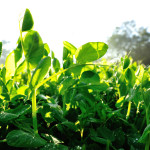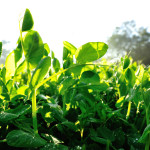 The Cabinet Secretary for Agriculture in Kenya, Willy Bett, spoke November 15 on a need to diversify Kenya’s fresh produce and the animal product exports sector.
The Cabinet Secretary for Agriculture in Kenya, Willy Bett, spoke November 15 on a need to diversify Kenya’s fresh produce and the animal product exports sector.
The minister touted the need to include food crops to the already highly successful horticultural produce like flowers, tea, fresh vegetables and fruits. This will help the country surmount the challenge of falling demand in the past year for its traditional crops, like French beans.
“We are working on a strategy…to give priority to food crops,” said the minister, before he made a trade pact for fisheries and agricultural exports with officials from Ireland.
The traditional produce and animal products that have the potential for penetrating the European, North American, Middle-eastern and Asia-Pacific markets, include Irish potatoes, sweet potatoes and fisheries.
The fisheries sector, according to 2013 statistics was worth 0.54 percent of all gross domestic product (GDP) in Kenya. This is courtesy of the Food and Agricultural Organization (FAO). In 2012, Kenya exported $62.9m worth of fish to various destinations, around the globe.
However, there is a trading imbalance in fisheries. For example, the country imported fish from China worth KSH 1 billion in 2015, a thing that could change if the country seeks to diversify its fresh water fish markets. Tilapia, Nile Perch, and cat fish, among other breeds are the leading local fisheries’ produce.
Bett highlighted that Kenya’s farming sector, as a whole, has a vital role to boosting the country’s economy. For this reason, there is need to commercialize it to improve produce competitiveness.
The main food crops that have not fully penetrated the export market include: maize, sorghum, dry beans, cassava and yams. Vegetables accounted for some KSH 13.5 billion worth of foreign exchange in 2012, a figure that has improved in recent years, and that could improve further, with diversification.
According to the Irish delegation to Kenya, the country on the British Isles seeks to bring high value potatoes to the local farming sector. The move will diversify the supply chain quality parameters, as Kenya braces for a diversified fresh produce sector.
